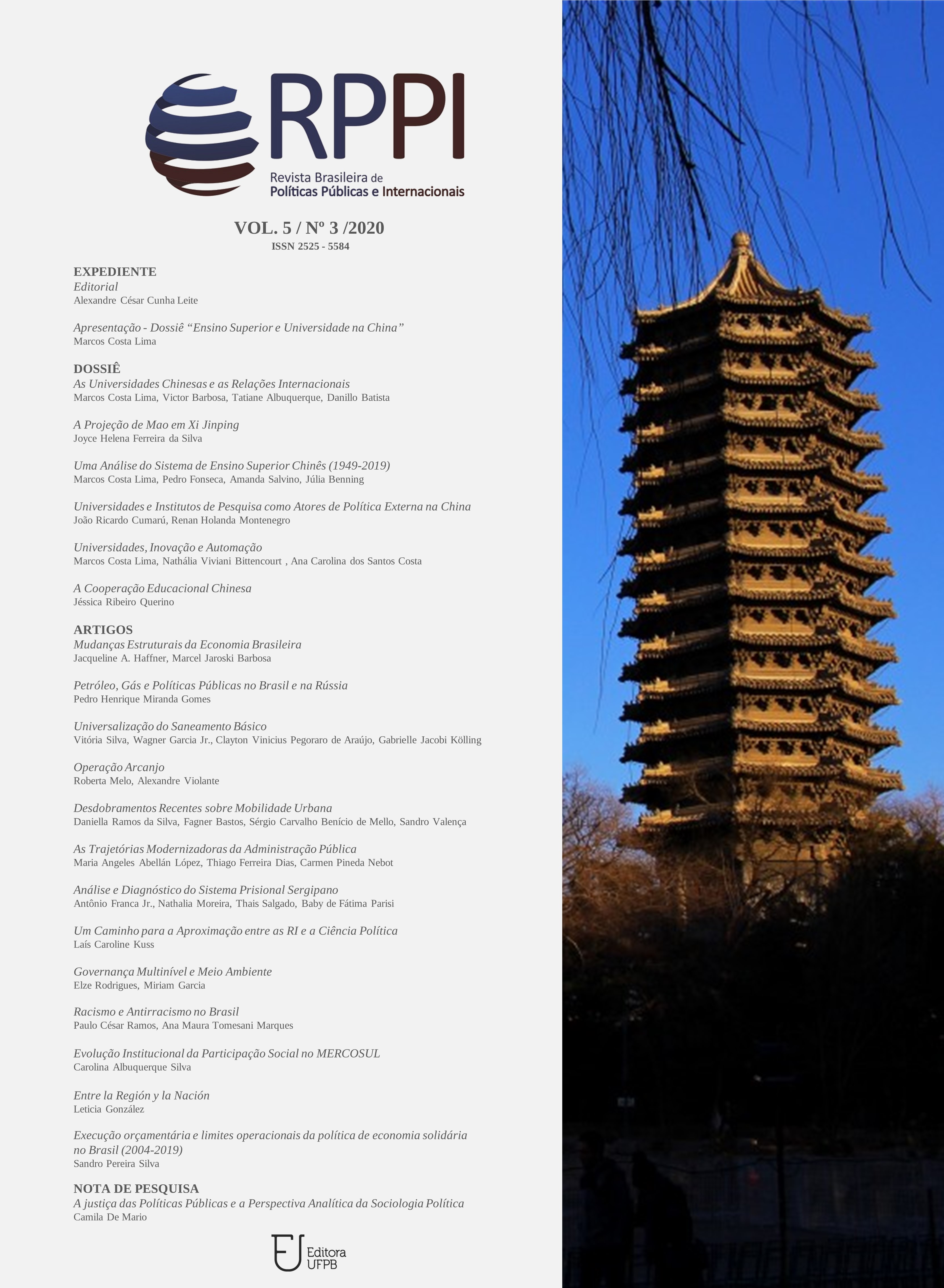The Modernizing Trajectories of the Public Administration
Brazil and Spain
DOI:
https://doi.org/10.22478/ufpb.2525-5584.2020v5n3.54673Keywords:
Administrative Reform, bureaucracy, New Public Management, Governance, e-administrationAbstract
The objective of this work is the comparative analysis of public administration reforms in Brazil and Spain during the last third of the twentieth century to the present. The main trends of modernization studied in this research are New Public Management, governance and e-administration. The methodology combines the historical analysis, the comparative method and the documentary and empirical collection of the data extracted from both administrations. Among the conclusions are similarities and singularities of each case. In both countries, modernization began as an adaptive response to social changes and reforms focused on the granting, privatization and outsourcing of contracts with private organizations as providers of public services. Among the differences are identified that in Brazil the reforms were concentrated in a very short period while in Spain they were gradual and in tune with the European Union.
Downloads
Published
Issue
Section
License
Autores que publicam nesta revista concordam com os seguintes termos:- Autores mantém os direitos autorais e concedem à revista o direito de primeira publicação, com o trabalho simultaneamente licenciado sob a Licença Creative Commons Attribution que permite o compartilhamento do trabalho com reconhecimento da autoria e publicação inicial nesta revista.
- Autores têm autorização para assumir contratos adicionais separadamente, para distribuição não-exclusiva da versão do trabalho publicada nesta revista (ex.: publicar em repositório institucional ou como capítulo de livro), com reconhecimento de autoria e publicação inicial nesta revista.
- Autores têm permissão e são estimulados a publicar e distribuir seu trabalho online (ex.: em repositórios institucionais ou na sua página pessoal) a qualquer ponto antes ou durante o processo editorial, já que isso pode gerar alterações produtivas, bem como aumentar o impacto e a citação do trabalho publicado (Veja O Efeito do Acesso Livre).




_.jpg)






.png)


.jpg)
_.png)
